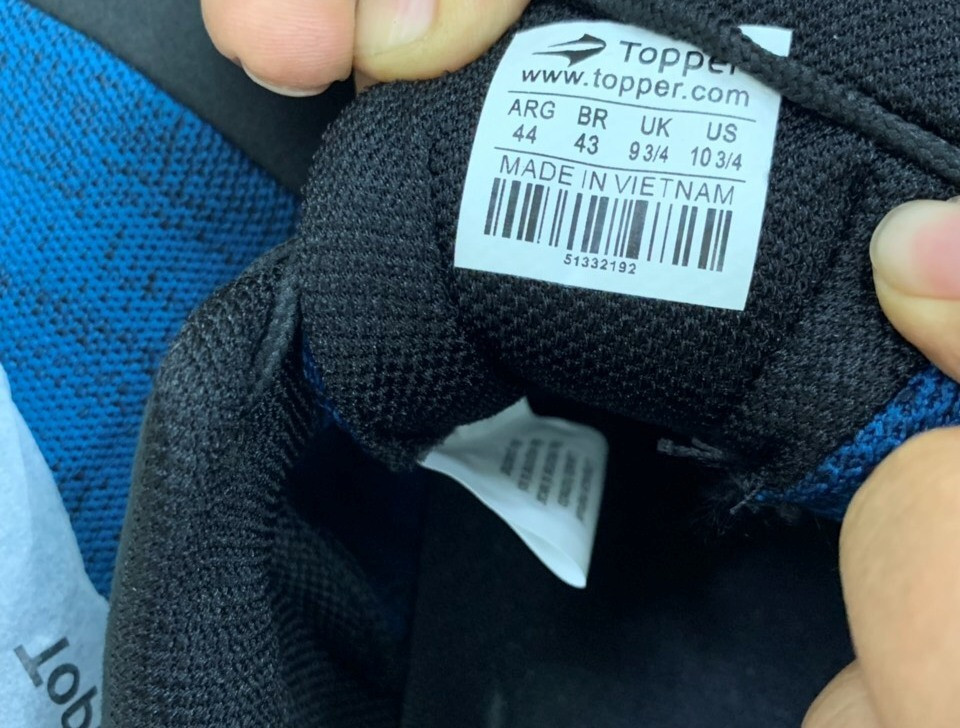
Customs authorities will tightly control raw material inputs to prevent foreign products from being disguised as Vietnamese goods for export to the U.S. and other markets.
Strengthening management to prevent origin fraud
The U.S. government’s new tariff policies are having a major impact on global trade, including Vietnam.
Dao Thu Huong, Deputy Director of the Customs Tax Operations Department at the General Department of Customs (Ministry of Finance), said that in addition to advising the Ministry of Finance and the government on tax policy, the Customs Department is implementing various measures to address U.S. concerns in Vietnam-U.S. trade relations.
Key initiatives include strengthening efforts to combat trade fraud and protect the true origin of Vietnamese goods.
In line with Decision 713, issued on April 3, 2025, by the Prime Minister, Vietnam Customs continues to intensify inspections and close monitoring of goods exported to the U.S., carefully assessing the origin of imported raw materials used to manufacture exports to the U.S.
The customs agency has issued official documents to rectify and warn against the influx of cheap consumer goods illegally entering Vietnam or engaging in pricing and classification fraud, which negatively affects domestic producers.
“We are studying the application of anti-dumping duties on textiles, electronics, and agricultural products from other countries if there are signs of unfair competition,” Huong noted.
Vietnam Customs has also compiled a list of companies suspected of origin fraud and illicit transshipment to tighten surveillance.
“We are rigorously controlling raw material sources to prevent foreign goods from being disguised as Vietnamese products for export to the U.S. or elsewhere. These anti-fraud and origin protection measures are being deployed very aggressively,” Huong emphasized.
Recently, the Customs Department recommended that the Ministry of Industry and Trade quickly issue regulations on how to determine goods manufactured in Vietnam to avoid confusion over Vietnamese origin when exporting. They also proposed clarifying regulations regarding simple processing activities in Decree 31/2018, which provides details on the Law on Foreign Trade Management regarding product origin.
Strengthening Vietnam-U.S. customs cooperation
Meanwhile, the General Department of Customs is boosting collaboration and information sharing with U.S. Customs authorities.
The two sides are working together to implement the Container Security Initiative: At major Vietnamese ports, international security standards are applied, and cargo is jointly scanned with U.S. Customs before being exported to the U.S.
Additionally, the two customs agencies are promoting the implementation of the “Declaration of Intent to Seek Cooperation Opportunities in Risk Management of Goods,” including establishing the Foreign Electronic Cargo Data Exchange Program (FECDEP) in Vietnam, signed in May 2024. They are also exchanging views on a draft “Cooperation Agreement on the Use of the Cargo Declaration Form.”
Vietnam Customs is also expediting negotiations and signing agreements with the U.S. on measures to combat circumvention of anti-dumping and countervailing duties. These agreements aim to strengthen bilateral support in investigating trade remedy violations and include arrangements for information sharing on port activities for export shipments.
According to statistics from the General Department of Customs, in 2024, Vietnam had 14,200 enterprises exporting to the U.S. The total tax revenue collected was about USD 9 billion (VND 226.7 trillion), accounting for 11.2% of the national budget revenue in 2024, and created jobs for 7.2 million workers, representing 22.3% of the formal workforce.
Among them, nearly 5,000 were foreign direct investment (FDI) enterprises, accounting for 78.3% of total export turnover - particularly in key sectors: phones and components (99.7%), footwear (79.04%), textiles (59.76%), and wood products (61.33%). All 18 enterprises with exports exceeding USD 1 billion were FDI companies.
Binh Minh